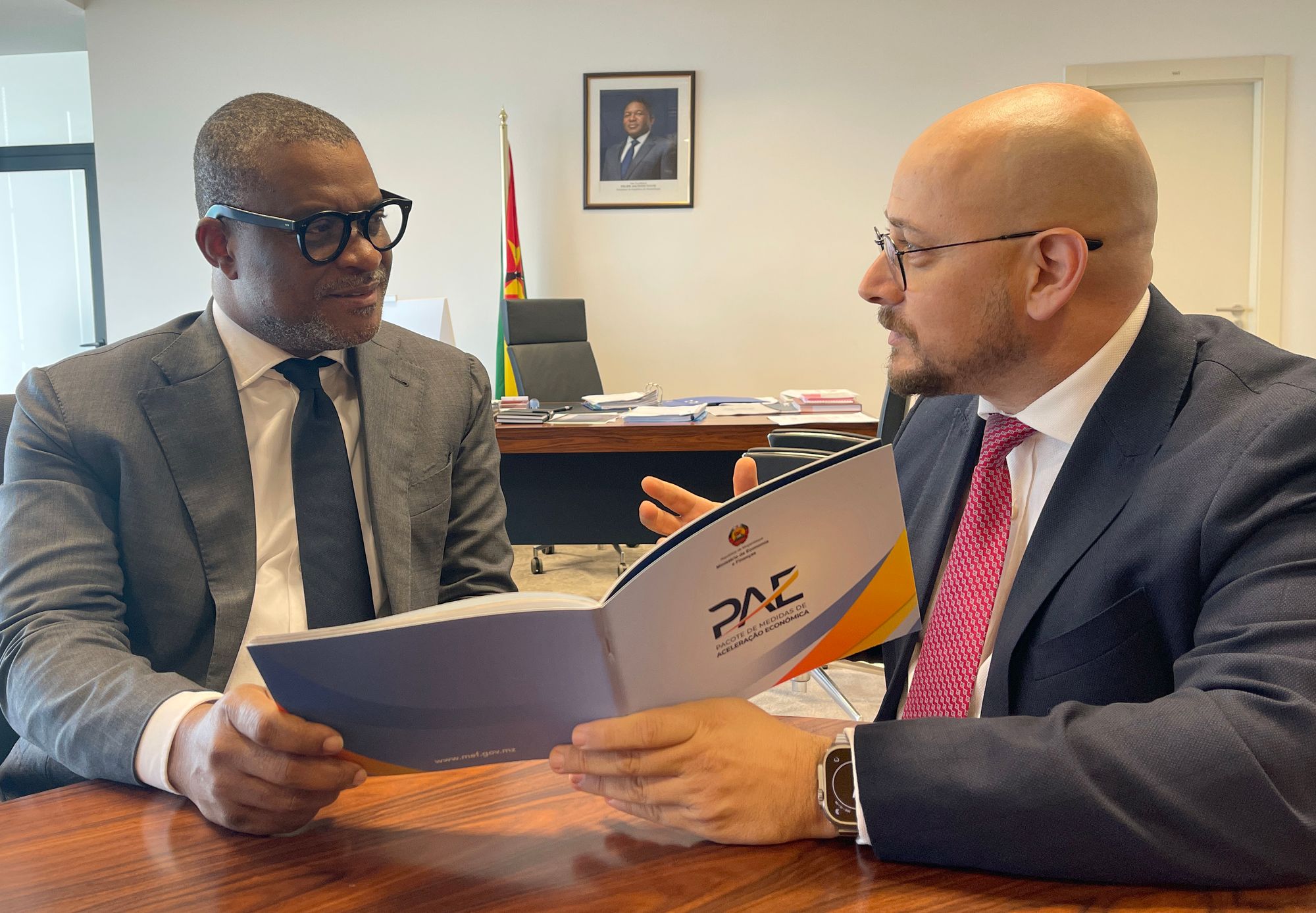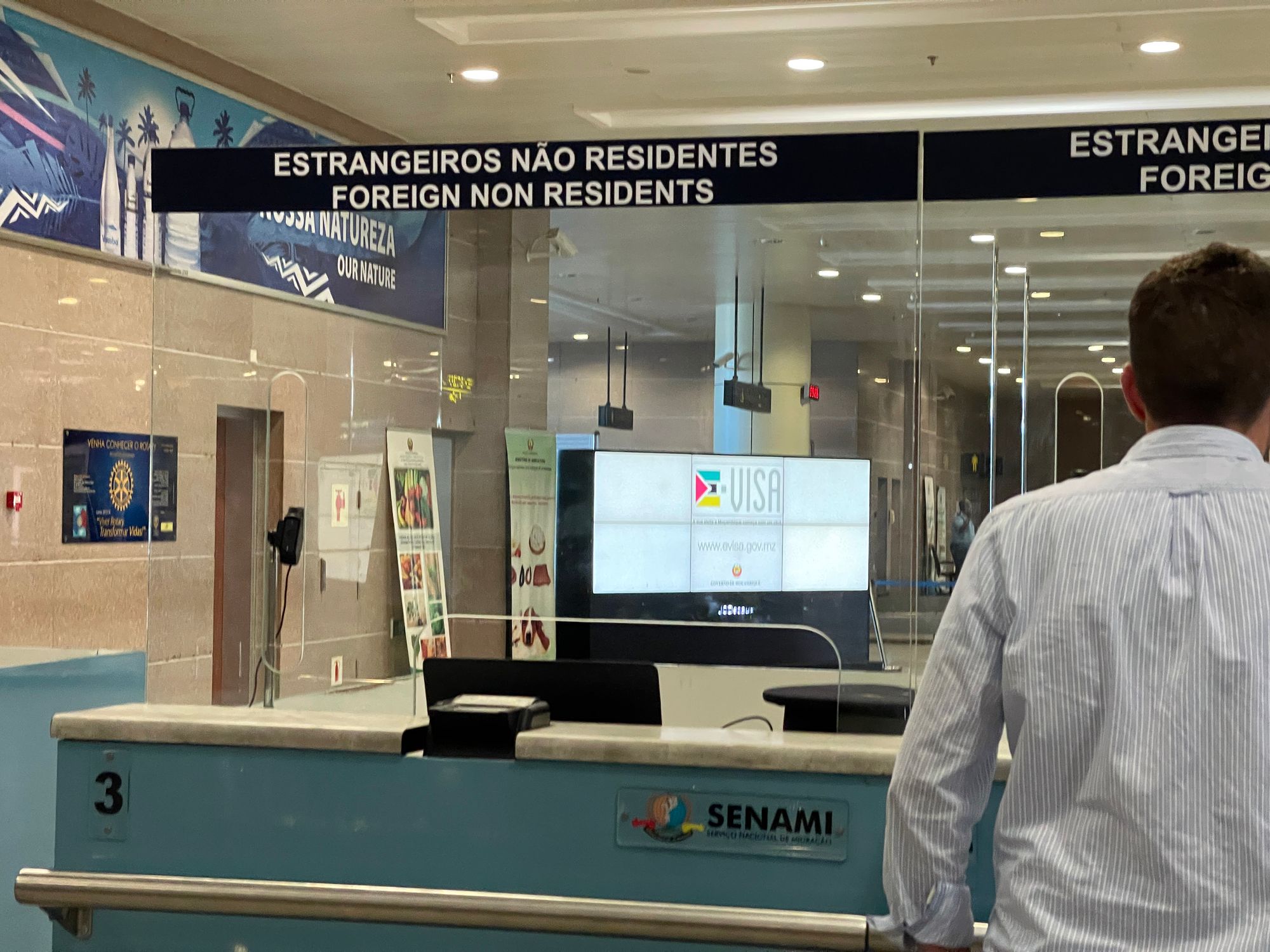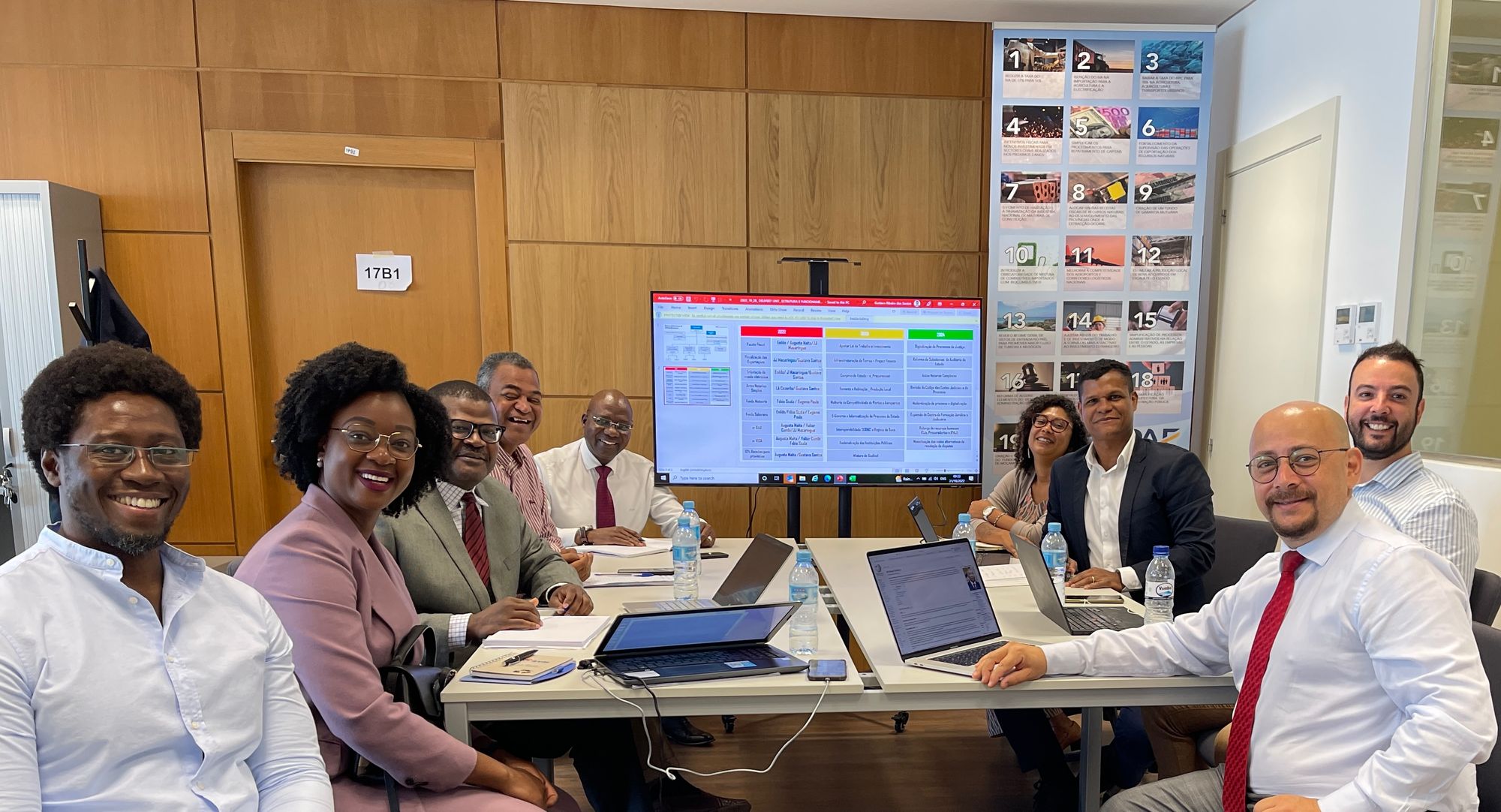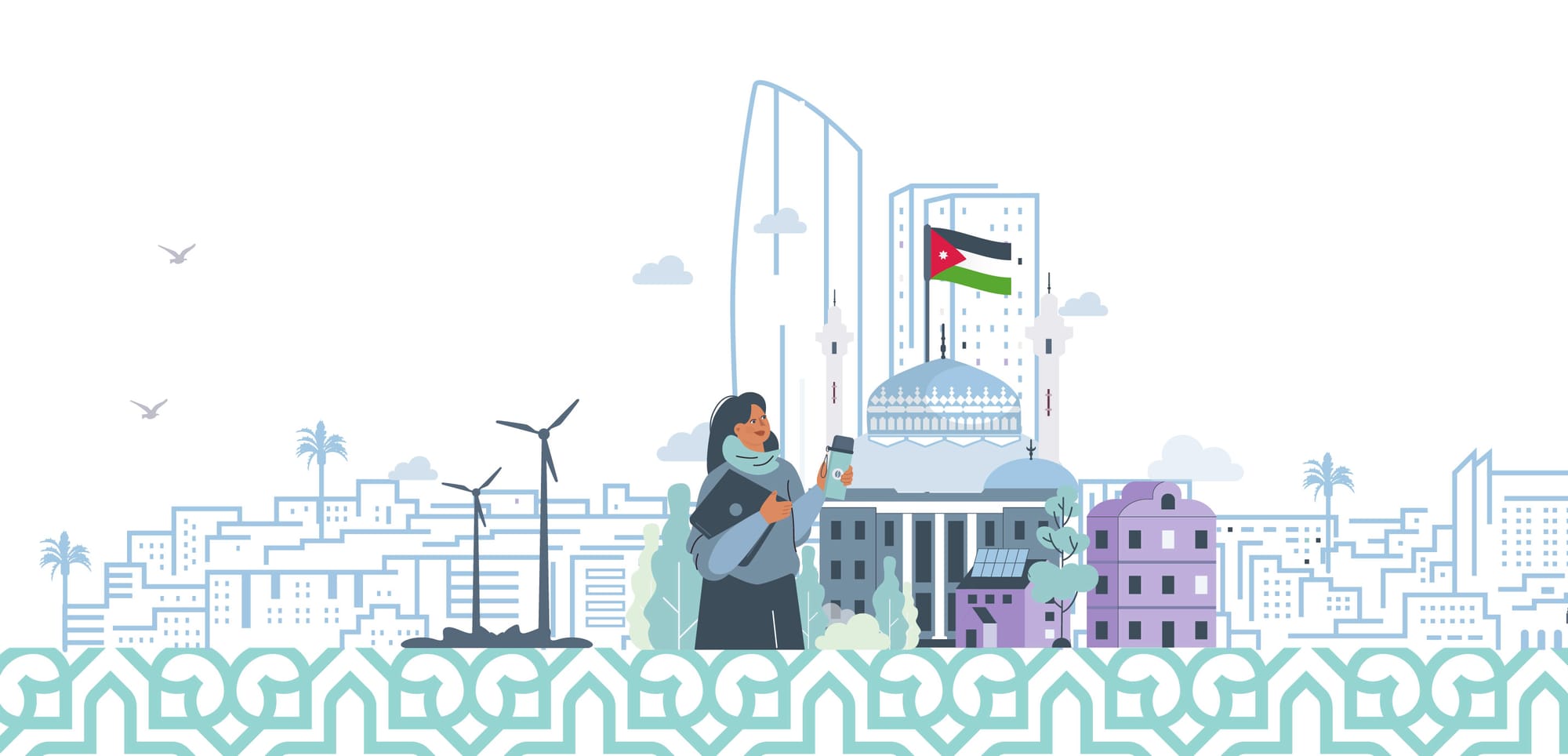By Kate Heuisler
The Government of Mozambique’s Economic Acceleration Package (known as PAE in Portuguese) lays out 20 high-priority reforms—launched in 2022 as the country recovered from the effects of COVID-19 and the Ukraine crisis—to help the country achieve macroeconomic stability and stimulate private sector development. To drive these reforms, the Ministry of Economy and Finance (MEF) requested assistance from the Supporting the Policy Environment for Economic Development (SPEED) program, funded by the U.S. Agency for International Development (USAID).
SPEED supports several PAE initiatives, such as reviewing the visa regime to facilitate tourism and business travel, establishing tax incentives for key sectors, designing a small business-focused Mutual Guarantee Fund, and increasing the degree to which communities share in the benefits of extractive operations (from 2.75 to 10 percent). DAI spoke with SPEED Advisor Fabio Scala, who is seconded to MEF’s Delivery Unit, to learn more about these and other key reforms.

What have been your biggest recent accomplishments?
Working within MEF’s Delivery Unit has allowed me to accomplish a lot, but if I had to highlight the most visible achievement, I would choose the visa regime.
Having had experience as a foreign investor with operations in the country, I have firsthand experience with the challenges posed by Mozambique’s visa system. Drawing on those memories, I was able to contribute to the design of an electronic visa platform (e-visa) that enables prospective tourists and business visitors to obtain visas online. This involved active participation in numerous work sessions with immigration authorities and system developers to ensure a user-friendly interface and a smooth workflow for visitors at the ports of entry.
The platform received an impressive 10,000 applications within its first three months, and the average prospective visitor obtained their visa via email in less than 24 hours. Before the platform went online, applicants often waited at least a month to obtain a simple tourist or business visa, which was handwritten in passports at the Mozambican Embassy in the visitor’s respective country.
Additionally, I had the opportunity to contribute to the development of a decree that ultimately became a visa waiver policy for tourism and business visitors from 29 countries, including the United States. Through a series of work sessions with the ministries of the Interior, Foreign Affairs, and Culture and Tourism, Mozambique’s immigration authorities took direct feedback from stakeholders and completely reconfigured their traditional visa process in a manner that indicates to the world that Mozambique is open for business. Based on early figures, the visa reforms have contributed to a year-over-year 34 percent increase of foreigners visiting the country, with the United States being the leading origin for both tourists and businesspeople.
Furthermore, although not yet implemented, I would also mention the development of a Mutual Guarantee Fund designed to address a key challenge of the Mozambican private sector: access to credit. The MEF Delivery Unit secured $300 million in funds from development financial institutions on highly concessional terms, which will be divided into three components: bank guarantees, credit lines, and capacity building. The guarantees should alleviate the pressure for small firms to provide collateral when applying for commercial loans. The credit line element will provide accessible funds to banks, either to blend into their products or to be directly passed on to small business applicants at better interest rates. The capacity building element aims to better prepare small entrepreneurs to organize their accounts and even bring informal companies into the formal economy.

Many of these reforms have been discussed for years. What is different now and why has the political will changed in the early 2020s to advance this suite of reforms?
Without a doubt, the biggest surprise of this experience has been the willingness of the different stakeholders to engage in the implementation of reform measures—many of which require process re-engineering at institutions that have historically been reluctant to change. Both the President of Mozambique and the Minister of Economy and Finance played pivotal roles in creating an unprecedented inclusive culture among a wide range of stakeholders involved in the various measures. This high level of engagement from senior officials resulted in a Delivery Unit that could interact in an uncluttered and dynamic manner with different sectors of the government, and the response was remarkable. Virtually everyone involved understood and embraced the purpose of their respective measures. I mean everyone.
As to why now, a significant number of changes brought about by the PAE responded to historical requests that, for various reasons, could not have been implemented earlier. The new PAE measures were seen by stakeholders, in many respects, as updates to policies and procedures created in a different era of government. The willingness of people to participate, contribute, and accelerate the implementation of the measures was tangible, providing proof that under the right leadership and work culture, it is possible to achieve great results in a relatively short time. The level of stakeholder buy-in reached a point where you could feel the pride of each person working on the measures.
What are the MEF’s goals over the next 12 months?
When PAE was launched, the MEF established a cabinet to coordinate the economic reforms and set a 24-month timeframe for the implementation of the proposed 20 measures. Currently, the implementation dashboard has already exceeded 50 percent completion, but many challenges remain. The focus of the next 12 months will primarily be on operationalization. Mozambique is a large country, and a significant portion of its business infrastructure is in the south. However, the measures being implemented aim to change the status quo for the entire country. I believe that the successful rollout of these measures and working with the provinces to ensure widespread compliance are essential for the overall success of the PAE.

What is something you wish more people knew about Mozambique?
From its rich cultural diversity to the vibrant traditions of its diverse ethnic groups to the breathtaking beauty of its pristine beaches, national parks, and islands, Mozambique offers a unique and enriching experience for visitors.
Mozambique’s strategic location along the coast of Southern Africa offers access to regional markets and trade routes, while its vast reserves of natural resources, including natural gas, coal, and minerals, make Mozambique a country ripe for foreign investment. With its commitment to investing in key sectors such as agriculture, energy, tourism, and infrastructure, Mozambique will increasingly be seen as a high-potential market for foreign investors.
What else can development partners and the government do to advance broad-based economic growth over the next five years?
The streamlining of bureaucratic processes along with the ability to establish impactful priorities, has been key to the successful implementation of the PAE. From the government's perspective, I would like to highlight the concept of an empowered Delivery Unit that brings together highly experienced professionals to address real-world challenges within a short timeframe. This concept of a central government-focused Delivery Unit has proven effective in other economies, and when properly applied, it can make a significant difference, as we have witnessed with the PAE.
With respect to development partners, I would encourage them to align investments with the momentum generated by the PAE reforms, which are the embodiment of locally led development.







